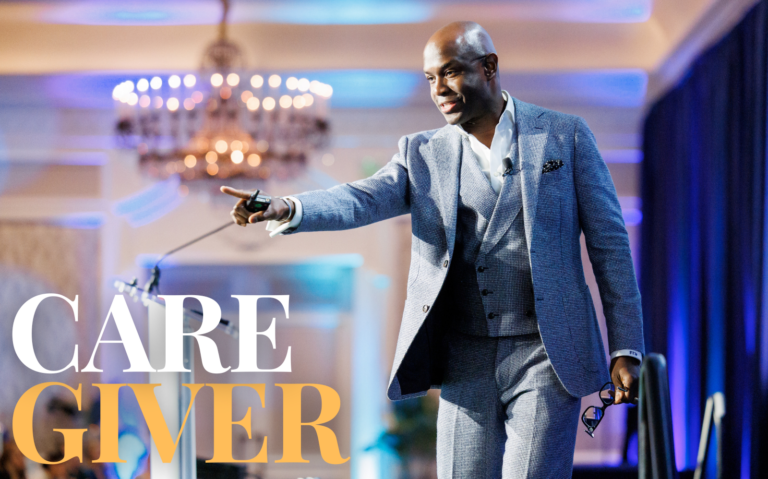
I Elevate
I elevate. I’m a people mover. I’m a potential seeker. I’m a dream encourager. I’m a career enhancer. I elevate. As an elevator… I listen
Share this post:
*This article is based on my real events, and it is my hope that everyone, in any industry, will be able to find nuggets of learning throughout.
(My voice) To the clinic receptionist:
Just who do you think you are? I don’t even want to be here and your indifferent demeanor is clearly saying “I am doing YOU a favor”. Visiting clinics like these make me mad and depressed at the same time. I am mad because I have to come here, but depressed that I couldn’t somehow avoid being sick so I can COMPLETELY avoid people like you. At the “reception” desk. What a joke. There was nothing receptive about how you didn’t acknowledge anyone who entered through the automatic doors. There was nothing receptive about how you begrudgingly nodded to the stack of clipboards, and said, “Take one. Fill it out. Return it to me.” There was nothing receptive about how you shouted “NEXT!!!!” Wow. I already don’t feel well, and now I find myself completely reliant on the services that you and your team have. So while I want to tell you a piece of mind, I, like many others, will sit here patiently awaiting my turn to be called by the Triage Nurse. Although there may not be any proof to back it up, I can’t help but think that if I said something to you, that you might “mistakenly forget” to pass along my paperwork to the triage nurse; thus, extending my time in the waiting area. So instead, I will just wait and hope that I never have to come back here to see people like you again. But chances are, inevitably, I will have to.
The sad part is that even though that receptionist was obviously in the wrong role, I’m confident that she knows HOW to be receptive and congenial. I’m sure that if I was her long-lost friend or favorite relative who came through the entry doors, the greeting would have been MUCH different. Even more than that, the feeling and emotion behind the greeting would have been much different as well. I would have felt welcomed, listened to, guided and emphathized with.
Lesson: Ensure that you have the right person in the receptionist role. That person is absolutely crucial to the overall success of your service operation. In fact, regardless of what your company’s mission statement declares about service, all one has to do is observe and/or listen to the first point of contact for your business. In many ways, who you allow to be in that role will speak volumes about your organization’s commitment to service excellence.
(My voice) To the Triage nurse and Physician
So, I’ve been escorted to this patient room, told to sit on the bed, and wait for the nurse. Um, did they forget that I was in here? It’s been at least 30 minutes, and no one’s come by to check on me or anything. Maybe they are on a lunch break. But, oh wait, it’s 9:36AM. Too early for a lunch break. Now, don’t get me wrong. I expect to wait. Waiting isn’t really the ISSUE. The real issue is being kept informed about the wait time. Someone, somewhere, in this clinic can tell me something about when I can expect for a nurse (or any other human) to visit me. Compounding matters even more, there was a sign on the wall (in my patient room), that listed a set of seven service standards. The first three were:
We will make every effort to:
* Introduce you to our team
* Inform you and your family of your plan of care
* Update you regularly on your procedure times and delays (yeah, I had to read that one twice)
The triage nurse showed up, with no smile, no eye contact. Just started asking/reading a list of standard questions to me, then proceeded with the typical blood pressure exam and inserting the thermometer under my tongue. I kept thinking, WOW, a robot can possibly do her job…at the level she was doing it.
I explained my ailment to the nurse, she took notes on her computer, then left. Next (well actually, approximately 25 minutes later), the physician came in and asked what was the reason for my visit. What?! I’m thinking, “didn’t the nurse relay that information to you?” Based on the follow-up questions, it was clear that he and the nurse had not communicated at all. Very comforting, indeed (I’m being sarcastic). Seriously, I don’t know you, but I’m hoping (praying, wishing) that you know what you are doing. Plus, I trust that you (the physician) and the nurse will communicate and work together for the benefit of my health.
At the absolute basic level, patients expect their healthcare providers to be competent and informed. Not everyone is necessarily meant to be in a job that serves others. Indeed, it takes a special person to enjoy serving people. It takes an even more special person to enjoy serving people in a healthcare environment. I strongly believe that healthcare professionals (especially nurses), have no right to view their work as “just a job”. No way! Too many people rely on them, and what they do is far too meaningful, relevant and life-altering.
Lesson: Continuously help your team members re-orient themselves with the purpose of their role. The purpose is much more than fulfilling a set of tasks or functions. It is almost immoral to hire someone to fulfill a function. Instead, invite people to be a part of your organization’s family. Share your company’s dreams with them. Help each employee continuously hone a sense of purpose and relevance for their role.
That receptionist was not JUST a receptionist. She was the person who should have been warm, welcoming and helped to alleviate some of the typical anxiety that many people have.
That triage nurse was more than someone who took my vitals. She should have been empathetic, warm and re-assuring that I would feel better.
That physician is more than just someone who examines me, diagnoses my ailment and writes a prescription. He should have spoken with the nurse to ascertain what my specific issue was. Then come into the room informed and eager to assist.
As I was writing the lessons for each section of this article, I noticed that none of them necessarily required any extra money to be spent by the organization. All they require is for caring and attentive people to give what they can with what they have. If I may leave you with one takeaway from this article, it is this: Make service excellence the most important thing on your team and everything else will fall into place. If service excellence is important, then you will regularly talk about it, recognize it, and chastise it (when it’s not done). Some of the most beautiful and inspiring service I’ve seen has taken place in a healthcare setting. It is a special honor to be a blessing to patients and their families. If I have one wish today, it would be for everyone working in healthcare to view their roles in a renewed light. Not because they were told to…but because the patients and their families deserve it.

I elevate. I’m a people mover. I’m a potential seeker. I’m a dream encourager. I’m a career enhancer. I elevate. As an elevator… I listen

I have to admit, I don’t get upset too easily. It takes a lot to disturb the peace that I’ve worked hard to attain in